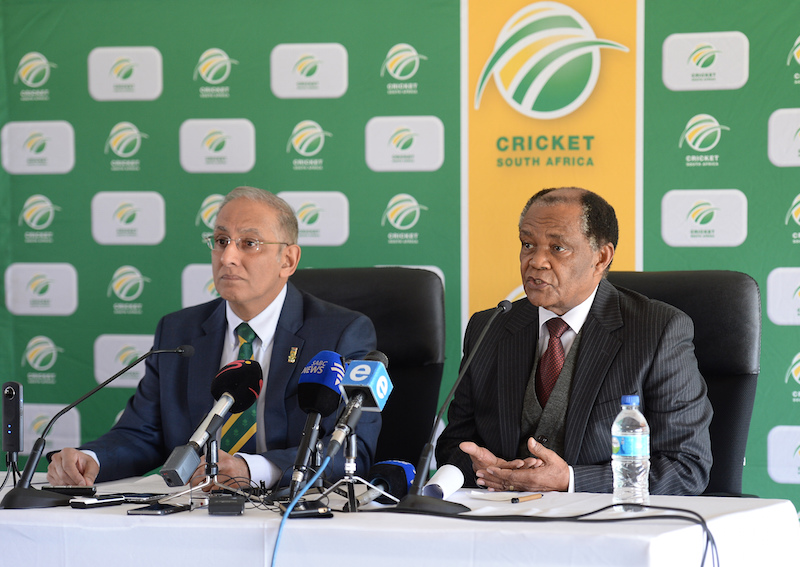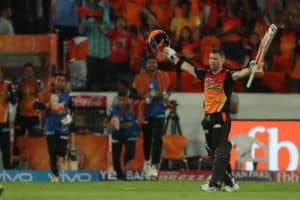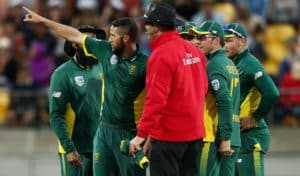CSA has banned Jean Symes, Pumelela Matshikwe, Ethy Mbhalati and Thami Tsolekile for their involvement in spot-fixing.
The banning of these four players follows lengthy investigations and the previous imposition by CSA in January 2016 of a 20-year ban on former Proteas, Lions and Titans player Gulam Bodi after Bodi had admitted charges of contriving or attempting to fix matches in the 2015 Ram Slam T20 Challenge Series. Bodi acted as an intermediary for international betting syndicates, approaching certain players with a view to engaging in fixing activities during the competition.
Jean Symes, an all-rounder formerly contracted to the Lions, has been banned for seven years for failing to disclose to the CSA Anti-Corruption Officer a payment which he knew or ought to have known was given to him to procure a breach of the Code; failing to disclose details of an approach to engage in corrupt conduct under the Code; failing to disclose full details of matters evidencing a breach of the Code by another participant; and failing to co-operate with the investigators by knowingly providing false information to them.
Pumelela Matshikwe, a bowler formerly contracted to the Lions, and Ethy Mbhalati, a bowler formerly contracted to the Titans, have both been banned for 10 years (Matshikwe having three of his 10 years suspended) for receiving a payment or incentive to fix or contrive to influence improperly a match or matches in the 2015 Ram Slam; making a payment which in the circumstances would bring the sport of cricket into disrepute; failing to disclose to the CSA Anti-Corruption officer a payment which they knew or ought to have known was given to them to procure a breach of the Code; failing to disclose details of an approach to engage in corrupt conduct and failing to disclose full details of matters evidencing a breach of the Code by another participant.
Thami Tsolekile, the former Proteas wicketkeeper and former Lions captain, has received a ban of 12 years for contriving to fix a match or matches in the 2015 Ram Slam; failing to disclose to the CSA Anti-Corruption Officer the full details of an approach to engage in corrupt conduct; failing to disclose full details of matters evidencing a breach of the Code by another participant; and obstructing or delaying the investigation by destroying evidence that was relevant to the investigation.
The CSA investigation was led by independent attorney and former ICC Head of legal, David Becker, and former police Colonel and current head of CSA’s Anti-Corruption Unit, Louis Cole. The investigation involved many months of painstakingly gathering evidence and co-operating closely with the ICC’s Anti-Corruption Unit as a result of the international nature of match fixing activities. The investigators have also engaged with the South African Police Services, the Hawks and independent forensic experts during the course of the investigation.
Commenting on the bans, CSA Chief Executive Haroon Lorgat said:
‘It is our stated position that any form of corruption in the game will be dealt with severely. We will leave no stone unturned and we will do everything in our power to protect the integrity of the game.
‘Corruption is a very serious matter and for this reason we have devoted extensive time and resources to fully investigate every shred of evidence. We are still finalising certain aspects of the investigation.
‘Whilst there has been no evidence to suggest that an actual fix in any match was carried out, these players all participated in material discussions about match fixing. In fact, they all went further and accepted, or agreed to accept in the future, sums of money which they knew or ought to have known was given to them to partake in activity that would amount to a breach of the Code, or bring the game into disrepute.
‘Our attitude towards any form of corruption is clear and hence why we have imposed such firm sanctions.
‘To their credit, all of these players eventually admitted their misconduct and co-operated with the investigators. They have also shown remorse for their actions. Importantly, each of them has indicated a willingness to engage in anti-corruption education to assist us to prevent this kind of conduct in the future.
‘I also want to take this opportunity to thank the ICC for assisting us in these multifaceted investigations,’ added Mr Lorgat.
The Independent Chairperson of CSA’s Anti-Corruption Unit and former Judge President of the North and South Gauteng High Courts, Bernard Ngoepe said, ‘Corruption in sport around the world remains a serious threat. In this case, CSA was fortunate that as a direct result of CSA and SACA’s player education programmes, the matter was brought to light. However, there is no doubt that players need to remain alive to the guile and deception on the part of fixing syndicates who operate internationally.
‘These investigations are by their very nature complex and time consuming and I am satisfied at the manner in which the investigations have been handled,’ added Judge Ngoepe.
The four players have accepted the bans which will come into effect on 1 August 2016.
The ban in terms of CSA’s Anti-Corruption Code prevents the players from participating in, or being involved in any capacity in, any international or domestic match or any other kind of function, event or activity (other than authorized anti-corruption education or rehabilitation programmes) that is authorized, organized, sanctioned, recognized or supported in any way by CSA, the ICC, a National Cricket Federation or any member of a National Cricket Federation.
As certain final aspects of the investigation are still to be concluded, neither CSA nor the ICC will make any further comment in respect of the matter.
Photo: Ashley Vlotman/Gallo Images





